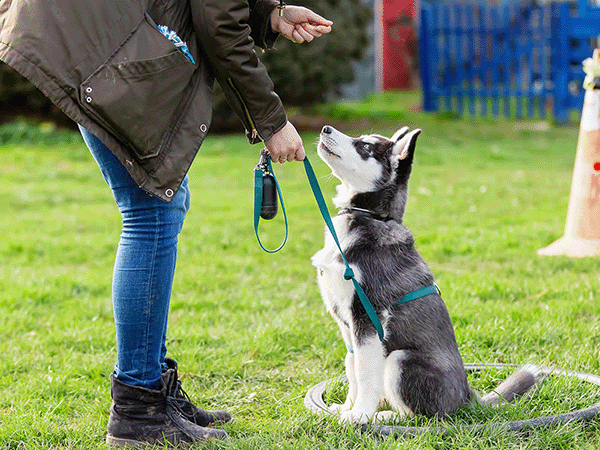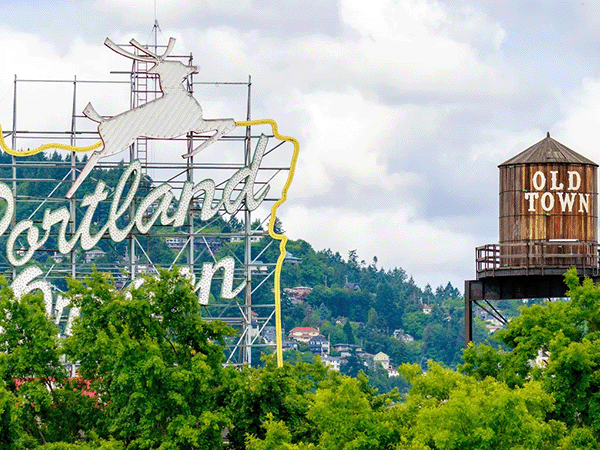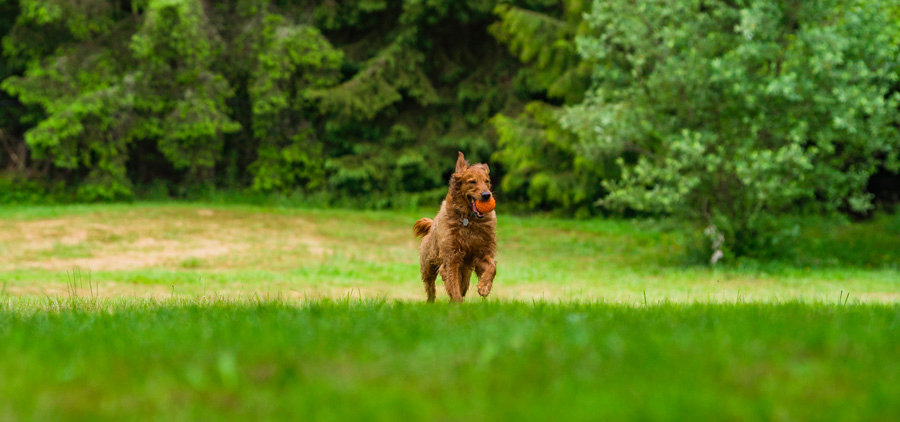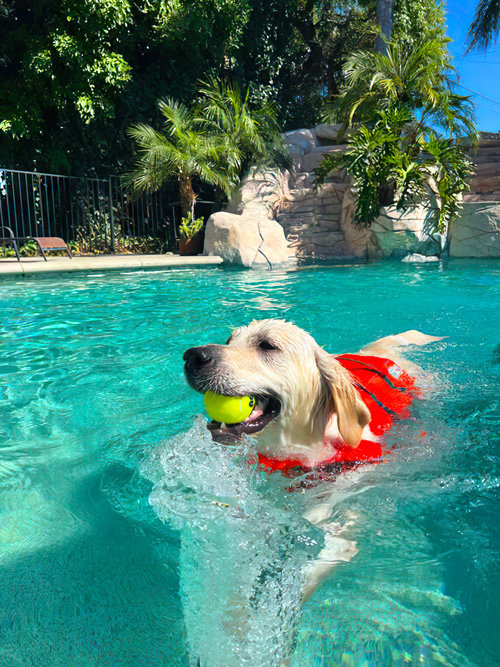Dog Show Training 101: A Beginner's Guide

Dream of seeing your furry friend strutting their stuff in the show ring? Dog show training might seem daunting, but it's a rewarding experience for both you and your pup. This guide breaks down everything you need to know about dog show training, from the basics to advanced techniques. We'll empower you to confidently handle your dog, making showing your dog a fun and successful adventure. Ready to learn more?
Here’s everything you need to know about training your dog for their first show!
Before you start training: Dog show basics
Key Takeaways
- Consider your dog's personality and breed before entering a dog show. Conformation focuses on how well a dog adheres to its breed standard. If shows aren't a good fit, explore other fun activities like agility or a trip to a Sniffspot park.
- Mastering gaiting, stacking, and comfortable handling are crucial for conformation. Use positive reinforcement and clear communication during training. The right equipment, like a martingale collar, can also make a difference.
- A mentor and a good support system can greatly enhance your dog show journey. Attend shows as an observer, connect with experienced handlers, and look into ringcraft classes. Remember to enjoy the experience with your dog, win or lose.
What exactly is a dog show?
According to the American Kennel Club (AKC), the official term for dog shows is conformation. This refers to the “act of conforming” or “producing conformity”. Show dogs aren’t judged against each other but are instead compared to their respective breed standards at performance events.
The more closely a dog’s appearance and temperament match breed expectations, the American Kennel Club believes the greater their chances of producing predictable puppies. (Though conformation as a sport has grown legs of its own over the years, prioritizing good breeding stock was the original motivation for conformation standards.)
Types of Dog Shows
Dog shows range from large all-breed events to smaller shows focusing on a single breed. In these competitions, dogs earn points toward becoming an AKC Champion. A total of 15 points are required for the title, and with a maximum of 5 points awarded per show, each competition is a valuable opportunity. The American Kennel Club website offers helpful resources for getting started in conformation.
Understanding Conformation
Conformation shows judge dogs based on how closely they adhere to their breed standard, not against each other. This approach connects a dog's adherence to the standard with its health and ability to produce healthy offspring. The focus is on the individual dog's qualities. Learn more about conformation shows on the AKC website.
If you're new to dog shows, attending one as a spectator is a great way to learn. Joining a local AKC club offers valuable training and support. Conformation classes can also teach you proper handling techniques. The AKC's guide on getting started has more helpful tips.
What dogs can enter a dog show?
While most shows in the United States are through the American Kennel Club, there is also a United Kennel Club (UKC) and a Mixed Breed Club of America (MBCA). Other regions have their own kennel clubs, too.
Only intact, purebred dogs are allowed in American Kennel Club dog shows, which goes back to the original purpose of conformation to judge breeding stock. The UKC has an altered class for spayed or neutered purebreds, though, and most mixed breeds are eligible to compete through the MBCA!
Breed Standards and Eligibility
To participate in AKC conformation events, dogs must meet specific requirements. Dogs must be at least six months old, a recognized AKC breed, and registered with the AKC. They must also be intact (not spayed or neutered). Additionally, dogs must be free of disqualifying faults, which vary by breed. Of course, ensuring your dog is in good health with up-to-date vaccinations is crucial.
Each breed has a detailed standard outlining the ideal physical and temperamental traits. These breed standards cover everything from size and coat color to gait and ear set. Judges evaluate how closely each dog conforms to these standards, rewarding those that best represent the ideal for their breed.
AKC vs. Other Organizations
While the AKC is the most prominent kennel club in the United States, other organizations offer conformation events as well. These include the United Kennel Club (UKC) and the Mixed Breed Club of America (MBCA). Other countries and regions also have their own kennel clubs with varying regulations and standards.
A key difference between the AKC and other organizations lies in their approach to spayed and neutered dogs. The AKC only permits intact dogs in conformation shows due to the historical emphasis on evaluating breeding potential. However, the UKC offers a class for spayed or neutered purebreds, and the MBCA welcomes mixed breeds to compete. If you're looking for a place for your dog to have fun and socialize outside of the show ring, check out Sniffspot's listings of dog parks near you.
Will your dog enjoy a dog show?
Even if your dog is eligible for a dog show, they might not actually enjoy the experience. And that’s okay! If your pet gets nervous or struggles with changes in routine, conformation might not be for you. Most dogs who thrive in the competitions are confident, social, and happy to work in a range of environments.
If your dog isn’t eligible for a show or you don’t think they’ll enjoy being out in the ring, there are countless other activities you can try together. Here are just a few to consider:
- Running sports like canicross, bikejoring, or skijoring
- Prey-focused events like barn hunt or lure coursing
- Competitive obedience
- Other dog sports like rally, agility, nosework, or dock diving
- Earning trick dog titles
- At-home exercise and enrichment
Assessing Your Dog's Temperament
Before you even think about the show ring, take an honest look at your dog’s personality. Are they generally happy-go-lucky and adaptable? Or do they get nervous in new situations? Do they enjoy meeting new people and other dogs, or do they prefer sticking by your side? Most dogs who thrive in competitions are confident, social, and happy to work in a range of environments. If your dog is more reserved or anxious, the hustle and bustle of a dog show might be overwhelming.
Think about how your dog reacts to being touched by strangers. During a show, the judge will examine your dog, feeling their body and checking their teeth. If your dog is uncomfortable with handling, it’s important to work on desensitization and counter-conditioning long before you consider showing. A qualified dog trainer can help you with this.
Signs Your Dog Might Not Enjoy Showing
Even if your dog seems like a good candidate on paper, pay attention to their body language at any conformation events you attend as a spectator. Do they seem interested in the other dogs? Or are they trying to hide? Are they relaxed and curious? Or are they showing signs of stress, like excessive panting, yawning, lip licking, or whale eye? If you’re thinking about showing your dog, attending a few shows first without your dog is a good idea. This will give you a feel for the environment and help you decide if it’s a good fit for your furry friend. You can even find dog-friendly locations near upcoming shows using Sniffspot to make the experience even better.
Remember, even if your dog is eligible for a dog show, they might not actually enjoy the experience. And that’s okay! There are plenty of other fun activities you can do together. If your pet gets nervous or struggles with changes in routine, conformation might not be for you. Focus on finding activities that you both enjoy, whether it's a romp at a dog water park, learning new tricks, or exploring Sniffspot's dog parks.
Equipment you need for a dog show
The right collar and leash
Your everyday walking collar or harness probably won’t be successful in the show ring. Professional handlers have other go-to gear. Here are two common gear options for your conformation dog:
- An “all in one” style show lead. This leash is all one piece—the line makes a loop at the end with a slider to keep it fastened around your dog’s neck. “All in one” collars are particularly common for small breeds.
- A martingale collar and show lead. Martingale collars were originally designed for sighthounds whose heads are smaller than their necks. They’re sometimes called “limited slip” collars. They tighten up enough to keep your dog from slipping out, but they have a minimum size where the loop won’t get any smaller (unlike a choke chain). These are a great choice for medium and large breed dogs.

Choosing the Right Lead: Resco, Martingale, or Show Lead
Picking the right lead is crucial for a successful show experience. While your everyday leash might work for walks around the block, it probably won’t cut it in the show ring. Professional handlers often prefer specific types of leads that offer better control and presentation. Here are a few popular options:
The first option is an “all-in-one” show lead. This type of lead is a single piece with a loop at the end. A slider on the loop allows you to adjust the fit around your dog’s neck. These leads are especially popular for small breeds. They offer a streamlined look and can be easier to manage with smaller dogs.
Another common choice is the martingale collar paired with a show lead. Martingale collars were initially designed for sighthounds, dogs with necks that are wider than their heads. Sometimes called “limited slip” collars, they gently tighten to prevent your dog from backing out, but they also have a limit to how much they can constrict, unlike a choke chain. This makes them a safe and effective option for medium and large breeds.
Finally, there's the Resco lead. Resco leads are lightweight and strong, often favored by handlers of sporting and working breeds. They offer excellent control and are easy to adjust quickly. Many Resco leads also come with a built-in collar, making them another convenient all-in-one option.
Other Essential Equipment
Beyond the right collar and lead, a few other essential pieces of equipment can make your dog show experience smoother and more enjoyable. Professional handlers often rely on these additional tools to keep their dogs looking and performing their best.
A grooming kit is a must-have. This should include brushes, combs, nail clippers, and any other tools specific to your dog's breed and coat type. Keeping your dog well-groomed is essential for the show ring. Check out our articles on Golden Retrievers and Poodles for breed-specific grooming tips. For more general guidance, our blog has a wealth of information on dog care and training.
A show crate or carrier is also important. This provides a safe and comfortable space for your dog to rest between events and can help reduce stress in the busy show environment. Make sure the crate is well-ventilated and large enough for your dog to stand, turn, and lie down comfortably.
Finally, don't forget the treats! High-value treats can be invaluable for rewarding your dog during training and keeping them motivated in the ring. Choose small, easy-to-eat treats that won't make a mess. Looking for dog-friendly places to practice? Sniffspot can help you find the perfect spot.
Clear communication with your dog
When you enter the show ring with your dog (or pass them off to a more experienced handler you hire for the competition, a common practice) you need to work together as a team. These things can strengthen your relationship and make sure you’re both on the same page:
- Reinforcement your dog loves. While you won’t actually use treats or toys in a competition, you should absolutely use them during your training! Keep your dog’s motivation up through positive training by generously rewarding them for a job well done.
- A reward marker like a clicker or verbal “yes” to mark exactly what your dog did to earn a reward. This makes it possible for you to communicate clearly during training sessions (even if you’re unable to deliver a treat precisely when your dog offers the right behavior) which makes the learning process easier on everyone!
- An understanding of your dog’s body language. The same way you want your pet to listen to your signals, it’s important you can listen to theirs. Pay attention to the things your dog does when they’re nervous (maybe ears back and tail down) or excited (sweeping tail and high head) so you can keep them comfortable as you train. And note that some dogs have different signals based on their respective breed—natural postures, gaits, ear and tail positions, and more.
Skills your dog needs for a dog show
In a conformation show, your dog will need to demonstrate three main skills: gaiting, stacking, and tolerating a physical exam.
It’s generally easiest to start working on these core behaviors while your best friend is still a puppy—but even older dogs can learn new tricks!
Gaiting
Gaiting means your dog moves at a certain speed (in line with their handler), in a precise position (head and tail carried in regard to their breed standard), and without pulling on the lead while in the show ring.
The judge will evaluate your dog’s structure as they trot with opposite front and back legs moving in unison.
How to train your dog to perform the right gaiting behavior:
- You can begin with your dog on or off lead.
- Lure your dog to walk at your left side using their favorite reward. Small training treats work great for this!
- Once your dog becomes familiar with the picture of walking at your side, adjust your own pace. You want to move at a speed that encourages them to trot.
- Position your lure to keep your dog’s head held high. Note: Unlike heeling, where it’s generally desirable to have a dog looking at their handler, you always want your dog’s head facing forward in conformation. This enables the judge to see your pet’s movement in profile!
- Over time, slowly fade out your lure in favor of a hand signal or verbal cue.
- Eventually you can decrease your rate of reinforcement (give treats less frequently) to get your dog used to covering longer distances without constant rewards.
Stacking
Stacking means your show dog stands in the proper position based on the written standard for their breed.
There are two kinds of stacking: hand stacking (where the handler or judge physically manipulates the dog into position), and free stacking (where the dog may be prompted to adjust their footing slightly but otherwise enters the position on their own).
Your dog will be stacked multiple times in each show:
- As soon as you enter the ring
- Before being moved as a breed group
- Individually for the judge’s examination (small dogs will stand on a table while medium and large breeds will stay on the ground)
- For the final lineup with the other competing dogs
Many handlers let their dog free stack for everything except the physical exam. Hand stacking your pet before the judge approaches can ensure they’re in the best possible stance.
Note: Your dog’s specific stack position will depend on their breed! Before starting to train either a hand stack or free stack, make sure you understand the guidelines in your pet’s breed standard.
How to train your dog to be hand stacked
- Hold a treat in your hand. Allow your dog to nibble on it as you use your other hand to adjust their feet.
- If your dog is too focused on the food constantly in your hand, consider wearing a treat pouch instead. This way you can periodically reward them for staying in place and allowing you to move their limbs without distracting them too much.
- Put your dog’s front legs into position first. Reward them frequently!
- Then move your dog’s back legs, continuing to reward them for staying calm throughout the process.
- Hold your dog’s legs near the hock, not the feet themselves, when you hand stack them. Your pet is more likely to adjust their entire body if you touch their paws.
- Once your dog is in position, slowly build up duration. Take your hands off of them and reward them for staying in place.
- If at any point your pet seems uncomfortable, take a step back in the process. Increase your rate of reinforcement and consider breaking things into even smaller steps (for example, instead of moving their leg right away, maybe you just work on touching it, then gently holding it, and so on).
How to train your dog to free stack
- Begin with your dog in a standing position. If they naturally sit or struggle to remain still, reward them often. Let them know that standing pays well in this context!
- Once your dog is able to stand for a reasonable interval, start teaching them how to move their paws into a precise position.
- You can teach your pet to move their back legs by stepping towards them. Mark and reward any shift of motion backward, which will eventually lead to them adjusting their rear paws into alignment in the correct position.
- You can do the opposite to teach your dog to move their front legs. Instead of stepping towards them, take a step away. Mark and reward as soon as they move their front feet!
- Once your dog gets the hang of moving their paws, you can add a hand signal or verbal cue (like “step” or “back up”) to communicate more clearly.
Being physically examined
Your show dog must also stay still for an examination. The judge will physically put their hands on your pet to evaluate their structure, including checking their teeth.
If your companion growls, snaps, or shows other signs of discomfort during this process, you risk being disqualified from the competition.

Training techniques to help your dog tolerate a judge’s examination
- The younger your dog is when you start getting them used to being handled, the better!
- Begin by regularly touching your pet and praising them for staying calm. You can start by giving treats while you have hands on them and work to where you only give the reward at the end.
- Take things slow, and move confidently. Over time, work up to examining your dog’s teeth, torso, and, if they’re male, their testicles.
- It can be helpful to give your dog a heads up that they’re about to be touched. For example, some handlers say cues like “mouth please” or “show me your teeth” before examining their dog’s bite. This can create a greater sense of predictability and trust in the show environment, especially while your dog holds a stationary stacked position.
- Once your dog is comfortable with you touching them in these ways, ask your friends and family to do the same thing. Closely watch the process to make sure your pet is comfortable. Reward frequently and don’t be afraid to take a step back if needed!
Finding a Mentor and Building a Support System
The Importance of Mentorship
Finding a mentor is crucial for learning the ropes of the dog show world. Experienced handlers or breeders can provide invaluable guidance, from understanding breed standards to mastering the art of stacking. A good mentor offers personalized advice, shares their experiences, and helps you avoid common pitfalls. They can also connect you with other people in the dog show community, expanding your network and support system. The American Kennel Club emphasizes the importance of support when entering the world of conformation, and having a mentor can make all the difference.
Connecting with Experienced Handlers
Attending dog shows offers a great way to meet experienced handlers and breeders who could become mentors. Introduce yourself, express your interest in learning, and ask if they’re open to sharing advice. Remember to approach handlers at appropriate times—avoid interrupting them while they're preparing for the ring or actively showing. A good time to approach someone is after they've finished showing, or during breaks. Most people in the dog show world are happy to share their knowledge. You can also find top dog trainers on Sniffspot, many of whom may have experience with conformation. Most importantly, have fun and enjoy the experience with your dog! Building these connections can create lasting friendships within the dog show community.
General show dog training tips
Remember why you’re showing your dog in the first place
It’s easy to get overwhelmed when the stakes feel high. There’s nothing wrong with wanting your dog to place in conformation—but keep in mind the more important reasons (like trying something new as a team) you wanted to start showing them in the first place.
Everything you do with your dog should be about living a great life together. Time is short.
Reach out to a mentor or support network
The right guide can make a world of difference in your new dog show journey. If you own a purebred dog, consider reading out to your dog’s breeder, a local breed club, or attending existing AKC events to ask about conformation! Many veterans are happy to help newcomers find their footing through various mentor programs—and you might even find a group training class perfect for what you want to practice.
Fade off of food reinforcement and increase your criteria slowly
Slow and steady wins the race. No matter what dog show skill you’re working on or specific training process you’re following, it’s important to break things down into small, bite-sized chunks. Set reasonable expectations for both you and your dog.
Keep training fun!
Above all, the greatest joy is simply sharing life with your best friend. There’s nothing wrong with enjoying the thrill of a competitive dog show! But first and foremost, remember to enjoy your dog—independent of championships.
Practicing and Preparing for the Show Ring
Once your dog has mastered the basics—gaiting, stacking, and tolerating a physical exam—it’s time to take your training to the next level. Think of it like studying for a test: you wouldn’t just read the textbook, you’d take practice quizzes, too. The same applies to dog shows! Practice makes perfect, and there are several ways to prepare your pup for the big day.
Mock Judging and Ringcraft Classes
One excellent way to practice is by attending match shows. These are like unofficial dog shows, offering a less formal environment to practice and get feedback before entering official competitions. Think of them as dress rehearsals! They're a fantastic opportunity to get your dog accustomed to the ring atmosphere and for you to practice your handling skills without the pressure of a real competition.
Ringcraft classes are another valuable resource. These classes focus specifically on teaching dogs proper show ring behavior and handling techniques. They're a great way to socialize your dog to the sights, sounds, and other dogs they'll encounter at a show. Plus, you'll learn valuable tips from experienced instructors on how to present your dog in the best possible light.
Finally, consider attending a conformation show as a spectator before you actually participate. Observing the process firsthand can give you a much better understanding of what to expect and help you feel more prepared when it's your turn. It's also a great opportunity to chat with other exhibitors and learn from their experiences. You might even find a mentor who can offer guidance and support as you begin showing.
Socialization and Exposure to Different Environments
Beyond specific show ring skills, general socialization is crucial for success. Getting your dog used to a variety of people, places, and other animals is essential. A well-socialized dog is more likely to remain calm and confident in the bustling environment of a dog show. Try taking your dog to different dog parks or on walks in new neighborhoods to expose them to different sights, sounds, and smells. Even short, consistent daily practice in various environments can make a big difference. Daily practice, even in short sessions, builds focus and obedience.
Focus on practicing the "Watch Me" command in these different locations. This command teaches your dog to make eye contact with you, which is important for maintaining their focus and attention in the show ring amidst distractions. Reward your dog generously when they maintain eye contact, even for short periods, gradually increasing the duration as they improve. Building strong focus and obedience skills takes time and patience, but the payoff is worth it!
Dog Show Day: What to Expect
Once you and your canine companion have mastered the basics, it’s time to enter a competition! Here’s a rundown of what to expect on the big day:
Arrival and Check-In
Most dog shows follow a similar structure. When you arrive, you’ll check in and receive your dog’s number. This is what you’ll wear on your clothing so the judges can easily identify you and your dog. Before your first show, the American Kennel Club recommends attending a show to observe the process, joining a local AKC club for training and support, and enrolling in conformation classes to learn proper handling techniques.
Once you’re checked in, find a place to set up. Many people bring crates, grooming tables, and other supplies to make their dog comfortable. This is also a good time to double-check your dog’s appearance and make any last-minute touch-ups.
The Judging Process
The judging process will vary depending on the show, but most follow a similar format. Your dog will compete against others in their breed and age group. As a reminder, your dog will demonstrate three main skills in a conformation show: gaiting, stacking, and tolerating a physical exam. The judge will evaluate your dog’s structure as they trot, with opposite front and back legs moving in unison.
The judge will examine each dog individually and then have the dogs move around the ring as a group. They’ll look for how well your dog conforms to the breed standard, as well as their temperament and overall presentation. If you're curious about finding the right trainer to help you prepare, check out Sniffspot's resources on top dog trainers.
Post-Show Etiquette
Whether your dog wins or loses, maintain good sportsmanship. Congratulate the winners and thank the judges for their time. Remember that everything you do with your dog should be about living a great life together. Time is short, so savor the special moments you share with your furry friend. If your dog isn’t eligible for a show or you don’t think they’ll enjoy the show ring, try other activities together. Sniffspot offers dog-friendly locations where you and your pup can enjoy quality time, from dog water parks to private fenced areas perfect for training and play.
After the show, relax and reward your dog for their hard work. They deserve it! And if you're looking for inspiration for your dog's name, or perhaps your next dog's name, check out our list of dog names.
Trainer that reviewed this article
There is so much misinformation out there, and we want to make sure we only provide the highest quality information to our community. We have all of our articles reviewed by qualified, positive-only trainers. The trainers that review our content are reviewed by other trainers to ensure that we have the best quality filters on our content.
This is the trainer that reviewed this article:
Penny Locke
Proudly offering Positive Reinforcement & Force-free Dog Training
www.allabout-canines.com
Related Articles
Frequently Asked Questions
Is my dog right for conformation?
Conformation shows can be a fun experience, but they aren't for every dog. A dog who enjoys conformation is typically confident, enjoys meeting new people and dogs, and is comfortable being handled. If your dog is shy, anxious, or reactive, the show environment might be too overwhelming. Consider your dog's personality and comfort level before deciding if conformation is a good fit. Plenty of other activities, like other dog sports, can strengthen your bond if showing isn't the right path for you.
What equipment do I need to get started with conformation?
You'll need a few key pieces of equipment. Instead of your everyday collar, consider a show lead, a martingale collar, or a Resco lead for better control and presentation in the ring. A grooming kit tailored to your dog's breed is essential for keeping them looking their best. A comfortable crate will provide a safe space for your dog to rest between events, and high-value treats will be helpful during training.
How can I find a mentor to help me with conformation?
Connecting with experienced handlers or breeders is invaluable. Attend dog shows and introduce yourself to people after they've finished showing. Local AKC clubs are also excellent resources for finding mentors and learning more about conformation. Many clubs offer training classes and support networks for newcomers. Don't hesitate to ask questions and seek guidance from those with experience.
What can I expect on the day of a dog show?
On show day, you'll check in, receive your dog's number, and find a place to set up. Make sure your dog is well-groomed and ready to present their best self. The judging process involves individual evaluations and group movements, where the judge assesses each dog's adherence to the breed standard, temperament, and presentation. Remember to maintain good sportsmanship and congratulate the winners, regardless of the outcome.
How can I practice for conformation outside of a show environment?
Match shows are excellent practice opportunities, providing a less formal setting to get feedback before official competitions. Ringcraft classes focus specifically on show ring behavior and handling techniques. Regular socialization is also crucial, exposing your dog to various people, places, and other animals to build their confidence. Even short, consistent daily practice in different environments can make a big difference in your dog's performance.
Most recent articles
Related articles
Top dog guides per area
Dog training guides

Dog Food Aggression: Why You Shouldn't Punish It
Does your dog ever growl when you walk by their food dish? Maybe they get possessive of treats, carrying them far away and giving you side-eye when you start to approach — or snarling at your other pets or children if they get too close.

Best Dog Fields in the US: 25+ Wide-Open Spaces for Your Pup to Run Free
The best dog fields in the US offer something that traditional enclosed parks simply can't match: acres of open space where your pup can truly stretch their legs and run at full speed. From Colorado's 470-acre prairie meadows to Tennessee's award-winning "Outback," these wide-open spaces allow dogs to roam, explore, and exercise naturally while engaging instincts that cramped urban parks suppress.

The Ultimate Guide to Scent Training for Dogs
Your dog's nose is an amazing tool. Did you know they have 40 times the olfactory receptors than humans? Scent training for dogs taps into this superpower, turning everyday moments into exciting sniff-fests. It's enriching for all types of dogs – reactive, shy, or simply adventurous. Ready to explore the world of scent work for dogs? Let's get started.

Service Dog Training Costs: DIY vs. Pro
More than 80 million Americans rely on their service dogs to help them navigate the world. Task-trained assistance animals perform a huge range of life-changing—in many cases, life-saving—services: These dogs act as eyes for visually impaired handlers, provide mobility support, alert to seizures and blood sugar crashes, interrupt anxiety attacks, remind their people to take medications, and so much more.

How to Deal With Puppy Potty Training Regression
You thought those dreaded middle-of-the-night potty breaks were over. You were finally free from cleaning up puppy puddles. Then, suddenly, your furry friend starts having accidents again. It's frustrating, right? This puppy potty training regression is more common than you think. Don't worry; we'll help you get your pup back on track. We'll cover the common causes, offer practical solutions, and give you actionable steps to tackle this challenge together.

Dirty Dog Syndrome: Causes, Solutions, and Prevention
It's a cringe-worthy moment every dog owner dreads: your furry friend chowing down on something truly disgusting. If your dog has a penchant for poop, you're dealing with coprophagia. It's more common than you think, and thankfully, often manageable. This article explores the reasons behind dirty dog syndrome, from instinct to learned behavior. We'll also give you practical tips to help break this unpleasant habit.

How to Train Your Rescue Dog: A Complete Guide
* All Sniffspot articles are reviewed by certified trainers for quality, please see bottom of article for details *
Dog enrichment guides

Best Dog Water Parks in the US: 15+ Amazing Splash Destinations for Your Pup
Do you have a water-loving dog looking to burn some energy? There are countless dog parks to visit throughout our country — but some of them become far too hot in the midday sun to be safe for your pets to play. That’s why we’ve put together a list of some of the best dog water parks throughout the United States! At these locations, your pup can frolic, splash, and swim to their heart’s content.

Best Dog Fields in the US: 25+ Wide-Open Spaces for Your Pup to Run Free
The best dog fields in the US offer something that traditional enclosed parks simply can't match: acres of open space where your pup can truly stretch their legs and run at full speed. From Colorado's 470-acre prairie meadows to Tennessee's award-winning "Outback," these wide-open spaces allow dogs to roam, explore, and exercise naturally while engaging instincts that cramped urban parks suppress.

Best Toys for Herding Dogs: Keeping Your Pup Happy & Engaged
Herding dogs are amazing, intelligent companions. But that also means they need more than just a simple game of fetch. Finding the right toys for herding dogs is key to keeping them happy and stimulated. This article explores some of the best toys for herding dogs, including options specifically for breeds like Border Collies and Australian Shepherds. We'll help you discover the perfect herding toys for dogs to tap into their natural instincts and keep them entertained for hours.

Tough Dog Toys for Aggressive Chewers: A Practical Guide
Does your dog destroy every toy you give them? Is your house littered with the remnants of plush toys? Are you tired of wasting money on "indestructible" dog toys for aggressive chewers that don't last? Then this post is for you. We'll cover everything you need to know about finding the best dog toys for aggressive chewers, so you can finally give your pup something safe, durable, and fun.

Daily Exercise Calculator: How Much Exercise Does Your Dog Need?
Everyone knows dogs need exercise, but how much is enough? Walks are great, but creating a truly balanced fitness plan means understanding your dog's specific needs. This post helps you develop a daily exercise calculator for your dog, considering breed, age, and lifestyle. We'll cover fun activities, understanding exercise intensity, and recognizing when your pup has had enough. Let's create a plan that keeps your dog happy and healthy!

Complete Guide To Herding With Dogs
* All Sniffspot articles are reviewed by certified trainers for quality, please see bottom of article for details *

Dog Enrichment Activities: The Ultimate Guide
Ever feel like your dog is restless or bored? They may be getting enough exercise, but still need more. That's where enrichment activities for dogs come in. Giving your dog opportunities to sniff, explore, and problem-solve can make a world of difference. Whether you have a puppy, adult, or senior dog, enriching their environment is key for their well-being. Let's explore how to add cognitive enrichment for dogs, even tailoring activities to your dog's breed with breed specific enrichment and fun enrichment games for dogs.
Dog reactivity guides

Rottweiler Aggression: Truth vs. Myth
Many dogs have gotten a bad reputation over the years for being "dangerous breeds." Rottweilers are among them. Like pit bulls and other large, blocky-headed types of dogs, these powerful and beautiful animals are often assumed to be aggressive.

Best Dog Fields in the US: 25+ Wide-Open Spaces for Your Pup to Run Free
The best dog fields in the US offer something that traditional enclosed parks simply can't match: acres of open space where your pup can truly stretch their legs and run at full speed. From Colorado's 470-acre prairie meadows to Tennessee's award-winning "Outback," these wide-open spaces allow dogs to roam, explore, and exercise naturally while engaging instincts that cramped urban parks suppress.

What Is a Reactive Dog? A Practical Guide for Owners
Does your dog suddenly transform into a barking, lunging Tasmanian devil on walks? It's stressful for both of you. If this sounds familiar, you might have a reactive dog. Understanding what is a reactive dog is the first step to calmer walks. We'll explore the common triggers and give you actionable strategies to manage and modify this behavior. Let's turn those stressful walks into enjoyable outings.

How to Socialize a Reactive Dog: A Step-by-Step Guide
Does your dog display reactivity to other pets or people? Maybe they’re a new rescue pup and are still settling into your home. Or they were sick growing up, so you missed their critical socialization period. Possibly they’ve had a bad experience after being raised as a normal puppy.

What Is a Reactive Dog? A Complete Guide
Is your dog overly excited or fearful around other dogs? Do they bark, lunge, or whine? You might have a reactive dog. Many dog owners face this challenge. Understanding what a reactive dog is is the first step to helping them. This guide explores the common causes of dog reactivity, explains what makes a dog reactive, and offers practical tips and resources. Let's work together to build a stronger bond with your dog and enjoy stress-free walks.

9 Best Online Communities for Reactive Dog Parents
Does your dog's reactivity make walks stressful? You're not alone. Many dog owners face similar challenges. This guide offers practical advice and support for managing reactivity, including finding the best online dog training for reactive dogs. We'll connect you with reactive dog support groups, share training tips, and explore resources like the best dog training app for reactive dogs. Let's build a stronger bond with your dog, together.
* All Sniffspot articles are reviewed by certified trainers for quality, please see bottom of article for details *
How To Groom a Reactive Dog
* All Sniffspot articles are reviewed by certified trainers for quality, please see bottom of article for details *
Sniffspot community guides

The State of Public Dog Parks Across the United States
From 2009 to 2020, there was a 40 percent increase in the development of public dog parks. Designated spots for canine exercise have become commonplace in every major city in North America — many pet owners won’t even consider renting an apartment that doesn’t have its own fenced-in pet area for their canine companions.

Best Dog Fields in the US: 25+ Wide-Open Spaces for Your Pup to Run Free
The best dog fields in the US offer something that traditional enclosed parks simply can't match: acres of open space where your pup can truly stretch their legs and run at full speed. From Colorado's 470-acre prairie meadows to Tennessee's award-winning "Outback," these wide-open spaces allow dogs to roam, explore, and exercise naturally while engaging instincts that cramped urban parks suppress.

How This Family is Affording Their Dream Property Through Renting it Hourly to Dogs
Thousand Oaks, California has been a safe haven for Sniffspot host, Jen, since childhood. Having grown up in busy Santa Barbara, Jen, an introvert from an early age, would seek out solitude and serenity away from tourists attractions and droves of people visiting from elsewhere. “My grandparents own 60 acres about a 30 minute drive from here, and I grew up spending every summer and every holiday visiting them on the ranch,” Jen explained. “In Santa Barbara, we wouldn't go to the beach on the weekend because that's where everybody was, so you'd find places off the beaten path where the tourists weren't. For me, the ranch was just my happy place.”

Host Tips: Ellen K. What Makes Sniffspot Successful for Me
Ellen is the host of Country Pasture Getaway, one of Sniffspot's most popular sniff spots. She has taken the time to write up the lessons she has learned about how to be a great sniff spot host.

How this Oregon Farmer is Making a Business From Renting Her Land to Dogs
Just 20 minutes outside of the busy city of Portland, Oregon, and settled right on the banks of the Columbia River, you’ll find what countless visitors have flocked to the area in search of – mountain views, crisp, clean air, and running water for miles. What you might not expect to find, however, is a hidden oasis designed just for dogs and their people, owned and operated by a farming couple and enjoyed by visitors on two legs, and four.

Host Tips: Fran T. Providing Great Guest Service at our Spot
Fran is the host of Ranch Setting, one of Sniffspot's most popular spots. She has taken the time to write up the lessons she has learned about how to be a great Sniffspot host.

How Sniffspot Helped a Nervous Rescue Work Through His Fears and Change His Family’s Life
This is the story of a family and dog rescuing each other.
Top dog trainers in the US

The Best Dog Trainers in the United States of 2026
This is a list of the top dog trainers in the United States, based on votes from the Sniffspot community and the general public.
The Best Dog Trainers in Seattle, WA of 2026
This is a list of the top dog trainers in Seattle, WA, based on votes from the Sniffspot community and the general public.
The Best Dog Trainers in Portland, OR of 2026
This is a list of the top dog trainers in Portland, OR, based on votes from the Sniffspot community and the general public.
The Best Dog Trainers in Los Angeles, CA of 2026
This is a list of the top dog trainers in Los Angeles, CA, based on votes from the Sniffspot community and the general public.
The Best Dog Trainers in New York, NY of 2026
This is a list of the top dog trainers in New York, NY, based on votes from the Sniffspot community and the general public.
City dog parks guides

Top 10 Indoor Dog Parks: A US Guide
Looking for a space to play with your dog no matter what the weather’s like outside? Look no further than our list of the best indoor dog parks in the United States! These climate-controlled spaces are growing in popularity as pet ownership increases throughout the country. As a bonus, many of them also offer dog training, boarding, grooming, or daycare services on the premises.

Best Dog Fields in the US: 25+ Wide-Open Spaces for Your Pup to Run Free
The best dog fields in the US offer something that traditional enclosed parks simply can't match: acres of open space where your pup can truly stretch their legs and run at full speed. From Colorado's 470-acre prairie meadows to Tennessee's award-winning "Outback," these wide-open spaces allow dogs to roam, explore, and exercise naturally while engaging instincts that cramped urban parks suppress.

Best Dog Parks in the US: Ultimate Guide to Public & Private Off-Leash Adventures
Is your pup giving you those pleading "let me run free" eyes? Whether you're a new dog parent or a seasoned pro looking for fresh adventures, finding the perfect off-leash paradise for your furry friend can feel ruff! From sun-soaked California beaches where your water-loving lab can make a splash to mountain trails in Vermont where your adventure buddy can chase every scent, we've sniffed out the 15 best dog parks across America.

Dog Parks Near Me: Las Vegas Edition
Looking for the perfect dog park near me in Las Vegas? You're in luck! This guide explores all the best options for your pup, from public dog parks to private dog parks near me on Sniffspot. We'll help you find the ideal spot for playtime, socializing, and fresh air. Plus, we'll cover essential etiquette and safety tips to ensure a happy visit for everyone. Get ready for some tail-wagging fun!

Top Sniffspot Locations: Find the Perfect Dog Park
Looking for the perfect dog park? Whether you need a wide-open public space or a private, fenced-in spot, this guide will help you find the best dog parks across the US. We'll cover top-rated public parks, the perks of private dog parks, and even explore Sniffspot locations – giving your pup a safe and fun place to play. Ready to find your dog's new favorite spot? Let's go!

Sniffspot: Portland's Best Private Dog Parks
Ready to discover Portland's best dog parks? Whether you're looking for a public park or the unique experience of a private Sniffspot, this guide has you covered. We'll help you find the perfect spot for your pup, with tips on what to bring, how to prepare, and even understanding dog body language. Plus, we'll explore some top Portland dog parks, including public and Sniffspot options, so you can plan your next dog-friendly adventure in the City of Roses.
Portland Dog Parks: Public & Private Options
This page is about public city dog parks and also includes Sniffspot private dog parks. Sniffspot is the largest network of private dog parks for rent in the world!
Small Dog Park Guide: Tips for Finding the Perfect Spot
Finding the perfect dog park for your small breed can be ruff! Big dog parks can be overwhelming, even dangerous, for little pups. This comprehensive guide helps you sniff out the best small dog parks for your pint-sized companion, covering everything from essential safety checklists to top recommendations for small dog parks across the US—including both public spots and private dog parks.
Dogs breeds

German Shepherd Guide: Best Family Dog? Truth from 9K Owners
The German Shepherd Dog (GSDs) are known for their intelligence, loyalty, and striking appearance. They're also incredibly versatile, excelling as working dogs and devoted family companions. This guide covers everything you need to know about GSDs, from understanding their unique traits and rich history to practical advice on training and care. So, whether you're a seasoned GSD owner or just starting your research, let's explore this remarkable breed together.

Best Dog Fields in the US: 25+ Wide-Open Spaces for Your Pup to Run Free
The best dog fields in the US offer something that traditional enclosed parks simply can't match: acres of open space where your pup can truly stretch their legs and run at full speed. From Colorado's 470-acre prairie meadows to Tennessee's award-winning "Outback," these wide-open spaces allow dogs to roam, explore, and exercise naturally while engaging instincts that cramped urban parks suppress.

Labrador Retriever: America's Best Family Dog? Owner Truth
Discover the Labrador Retriever, a breed celebrated for its playful nature, affectionate temperament, and trainability. Labradors are known for their friendly demeanor and adaptability, making them perfect family companions and versatile working dogs. As one of the most popular types of retrievers, Labs are ideal companions for various lifestyles and are recognized by the American Kennel Club (AKC) as an excellent breed for families.

Golden Retriever Advice: The Complete Owner's Guide
Golden Retrievers: they're gorgeous, playful, and incredibly popular. But before you welcome one into your home, you need the right golden retriever advice. This guide draws on the wisdom of nearly 10,000 Golden Retriever owners, offering practical tips for caring for these affectionate dogs. From understanding their high energy levels to mastering grooming and training, we'll cover everything you need to know. So whether you're already a devoted Golden parent or just starting your research, get ready to learn how to give your furry friend the best possible care.

Are American Staffordshire Terriers Good for First-Time Owners: Complete Guide
Think American Staffordshire Terriers are tough? Think again. While their muscular build might intimidate some, these dogs are known for their playful and loyal personalities. This guide draws on the experience of nearly 10,000 AmStaff owners to reveal the truth about this often misunderstood breed. Want to learn more about caring for an American Staffordshire Terrier? You're in the right place.

Australian Shepherd Facts: Breed Info & Care Guide
Discover the Australian Shepherd, an AKC breed celebrated for its trainable, playful, and affectionate nature. Despite its name, the Australian Shepherd is actually a native breed to the United States, originally developed to breed on farms and ranches. Considered a medium dog, Australian Shepherds were bred for herding beginning in the 1950s. As one of the high-energy breeds, Aussies are known for their boundless energy and need for regular exercise, including aerobic exercise.

Essential Husky Facts for Owners: Breed Guide
Discover the Siberian Husky, a breed celebrated for its curious, intelligent, and loyal nature. Considered a medium-sized dog, Siberian Huskies were originally bred in Russia for sledding, beginning in the early 20th Century. Today, they're one of the most popular active breeds in North America.





























